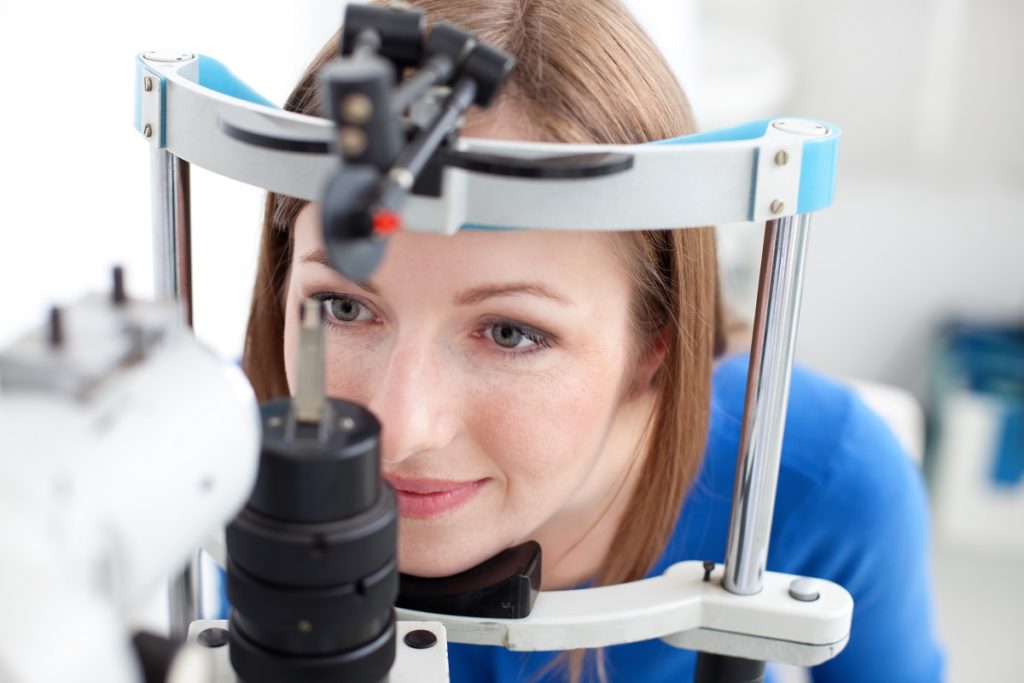
The team at Berks Eye Physicians and Surgeons greatly values your ocular health, and we want to help you enjoy clear vision as long as possible. One of the most important ways to ensure the long-term health of your eyes is to have regular comprehensive eye exams.
Often our doctors use dilating drops prior to eye exams. Dilating your eyes allows more light into your eyes, giving our doctors a clear look all the way into the back of your eyes. Think of dilation as a way of opening a door to see inside a room, instead of trying to look through a peephole.
Not only can we spot problems like a torn retina or an eye tumor during dilated eye exams, we can also catch signs of systemic diseases early — sometimes before a primary care doctor or specialist has a chance to diagnose these conditions.
What We Look For When We Dilate Your Eyes
A clear look at the back of your eyes gives us the chance to identify any abnormalities that could indicate disease. Since many eye diseases are asymptomatic, you could have a problem and not even know it. Regular dilated eye exams are the most reliable way to rule out any problems that could affect your eye health or vision.
Dilation helps our doctors look for irregularities inside your eyes, including but not limited to the following:
- changes to the shape or color of the optic nerve indicative of glaucoma
- yellow deposits or clumps of pigment (drusen) beneath the retina indicative of age-related macular degeneration
- swelling, leaking or other abnormalities of the tiny blood vessels in the back of the eye suggesting diabetic retinopathy and/or hypertension
- nerve damage suggesting diabetes
What Happens When My Eyes Are Dilated?
Dilation is painless. We administer special eyedrops that cause your pupils — the black openings in the center of your irises — to widen. It takes approximately 10 to 30 minutes for the drops to work, and the effects last four to six hours.
Dilating your pupils will make your vision blurry and your eyes slightly sensitive to light. You may wish to bring a pair of sunglasses you can wear home in case of light sensitivity.
Most adults over the age of 60 can benefit from a dilated eye exam every one to two years. Depending on your eye health history, family history and other risk factors, you may need dilated eye exams more frequently.
To request an eye exam at our practice, please contact us today.
 1802 Paper Mill Road, Wyomissing, PA 19610
1802 Paper Mill Road, Wyomissing, PA 19610

